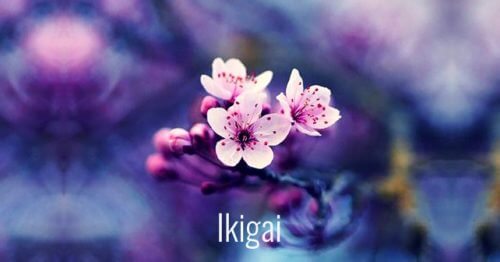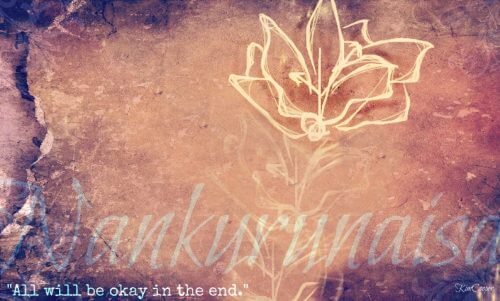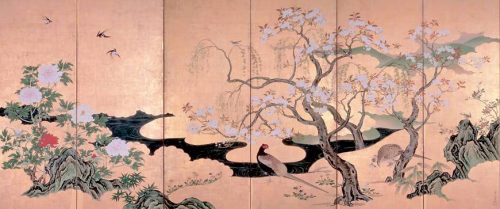7 Beautiful Japanese Words to Facilitate Personal Growth


Written and verified by psychologist Valeria Sabater
When you learn about other languages and words, you discover how other cultures organize the world around them, their perceptions of life, and even their personal universe. Here we will talk about some very interesting japanese words.
Japanese culture is known for having certain terms that encompass a series of ideas that tend to surprise, captivate, and draw in Westerners.
Japanese Words to Help Personal Growth
These invite you to deeply reflect on things and incorporate certain concepts that favor changes, personal growth, an understanding of new perspectives. Above all, they favor cultural and psychological enrichment.
Here we invite you to do this. We’re sure you’ll find these Japanese words to be as interesting as they are curious.
1. Ikigai, your reason for being
The first of these Japanese words is Ikigai. Everyone should have their own ikigai. This is a motive, purpose, illusion, or vital goal that gives you the strength and energy every morning to start your day.
As everyone knows, however, not everyone has discovered it yet. That’s why some people spend a long time feeling lost without a course or motivation that can bring them real and tangible happiness.
This is an interesting concept that you should definitely consider.
You might also like:
7 signs you’re a free spirit
2. Kintsukuroi, repairing our wounds with gold

In Japanese culture, kintsukuroi refers to a technique that attempts to repair broken porcelain pieces.
Rather than discarding them, artists will join those pieces with a putty that contains gold dust.
The cracks are visible because these veins show the strength of a unique object that tells its own story.
3. Aware, or the sorrow of transience
The next of these Japanese words is Aware. Life moves quickly and does not wait for anyone. It’s fleeting, intense, and unforgiving. Love sometimes ends and friendships may expire. What seemed safe before suddenly ends, forcing you to start from scratch.
Within all of these processes is “aware,” one of the most transcendent words of the Japanese language.
With it, sadness is transmitted to the fleeting nature of things. In turn, there is the need to continue moving forward and closing doors to open new ones.
We recommend you also read:
4. Majime, the person who knows how to be responsible
In Japanese, “majime” literally means a serious person.
Rather than understanding it to be a spontaneous little jab at someone’s closed or sullen appearance, however, it is above all a reference to their reliable character.
5. Nankurunaisa, one of the most beautiful words

It refers to a classic idea within motivational psychology, personal growth, and even spirituality in which you are urged to trust in the future.
Everyone has been through times when in the midst of adversity, the only option you have is to trust.
You have to understand that the passage of time, together with your will to act and your spirit, will fix everything and bring new opportunities to your horizon.
6. Gaman, endure the difficulties with dignity
Gaman is another term that’s directly linked to the roots of Buddhism. It proposes a philosophy that will help you see your life in a different way.
This word actually contains several different ideas:
- The capacity for self-control.
- A need to be patient.
- The resistance to endure difficult and complex times.
- A need to be resilient and combine dignity and strength.
- The ability to overcome and to try to do something every day to feel better.
“Gaman” also integrates an equally important and valuable idea: not neglecting others.
You should not be a burden or a bother, but rather an understanding person who can understand those around you even in the midst of your own problems.
7. Wabi-sabi, the beauty of imperfections

It refers to the beauty that exists within the things that seem to be imperfect.
In turn, it conveys the idea that the truly beautiful things are simpler, more elemental and pure, no matter their small defects or imperfections.
It’s something you can apply to your daily life to correct that common obsession with idealized beauty, seeking perfection in your life or with your body, or even your relationships.
Accept that we are all flawed and beautifully imperfect.
Learn to apply these simple but interesting ideas from Japanese culture in your day-to-day life.
All cited sources were thoroughly reviewed by our team to ensure their quality, reliability, currency, and validity. The bibliography of this article was considered reliable and of academic or scientific accuracy.
- Ishida, R. (2012). Reducing anxiety in stutterers through the association between “purpose in life/Ikigai” and emotions. Glob J Health Sci, 4(5), 120–124. https://doi.org/10.5539/gjhs.v4n5p120
- Tomás Navarro. (2017). Kintsukuroi: El arte de curar heridas emocionales
- Koren, Leonard (1994). Wabi-Sabi for Artists, Designers, Poets and Philosophers. Stone Bridge Press.
This text is provided for informational purposes only and does not replace consultation with a professional. If in doubt, consult your specialist.








